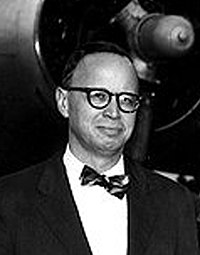Arthur M. Schlesinger, Jr.
| Arthur M. Schlesinger Jr. | |
|---|---|

Arthur M. Schlesinger Jr. in the early 1960s
|
|
| Born | Arthur Bancroft Schlesinger October 15, 1917 Columbus, Ohio |
| Died | February 28, 2007 (aged 89) Manhattan, New York |
| Occupation | Historian, writer |
| Alma mater | Harvard College (1938) |
| Period | 1939–2006 |
| Subject | Politics, social issues, history |
| Literary movement | American liberal theory |
| Spouse | Marian Cannon (1940–1970; divorced; 4 children) Alexandra Emmet Allan (1971–2007; his death; 1 child) |
Arthur Meier Schlesinger Jr. (/ˈʃlɛsɪndʒər/; born Arthur Bancroft Schlesinger; October 15, 1917 – February 28, 2007) was an American historian, social critic, and public intellectual. The son of the influential historian Arthur M. Schlesinger Sr. and a specialist in American history, much of Schlesinger's work explored the history of 20th-century American liberalism. In particular, his work focused on leaders such as Harry S. Truman, Franklin D. Roosevelt, John F. Kennedy, and Robert F. Kennedy. In the 1952 and 1956 presidential campaigns, he was a primary speechwriter and adviser to the Democratic presidential nominee both times, Adlai Stevenson II. Schlesinger served as special assistant and "court historian" to President Kennedy from 1961 to 1963. He wrote a detailed account of the Kennedy administration, from the 1960 presidential campaign to the president's state funeral, titled A Thousand Days: John F. Kennedy in the White House, which won the 1966 Pulitzer Prize for Biography or Autobiography.
In 1968, Schlesinger actively supported the presidential campaign of Senator Robert F. Kennedy, which ended with Kennedy's assassination in Los Angeles. Schlesinger wrote a popular biography, Robert Kennedy and His Times, several years later. He later popularized the term "imperial presidency" during the Nixon administration book of the same name.
...
Wikipedia
